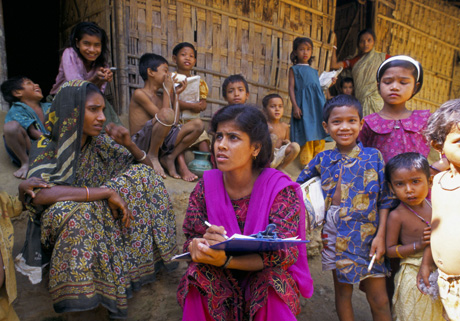CLEMENTINE TODOROV WRITES – In late August, at a press conference for his first official visit to Bangladesh, U.S Secretary of State John Kerry suggested that the Bangladesh media should cool it on terrorism coverage. “Perhaps,” Kerry said, “the media would do us all a service if they didn’t cover it quite as much. People wouldn’t know what’s going on.”
Telling reporters to say less about terrorism is a delicate topic for Bangladeshis, who are still struggling with their freedom of press and are concerned about the country’s state-enforced censorship. Sometimes, writers in Bangladesh and those who choose to speak out online face deadly consequences and already censor themselves for their own security.
Given that the First Amendment of the U.S. Constitution guarantees freedom of expression, it’s a bit unusual that Kerry would advocate for reporters to hold back information. The U.S. is supposed to lead the world in freedom and human rights, which most certainly includes free speech. The idea of censorship or denying the report of certain events goes against that ideal. This criticism can be found at home in Bangladesh as well.
Prime Minister Sheikh Hasina, expressed her unhappiness with the media, and was reported to have criticized publishers and TV channels for their coverage of a 2016 hostage crisis, in which ISIS militants captured and killed more than 20 people in a Dhaka cafe. Sheikh went so far as to threaten to revoke their licenses.
“When we are taking preparations, channels were telecasting those live,” the prime minister said. “Do they not think that the terrorists are watching this and devising their strategies accordingly? I request the television channel owners to please not do this.” This was the first type of terrorist event in Bangladesh and deeply upset the PM and other leaders.
Sheikh makes a valid point regarding the terrorists’ strategies being altered while TV channels are sharing tactical information. In this particular situation, the media revealed how the government planned to resolve the crisis, which might have lead the terrorists to kill more hostages. Given that several of those who died were from the U.S., Japan and India, media coverage may have had an international impact.
In a globalized world, media travels at the speed of light, and journalists must understand that they have a powerful job. As media is evolving and becoming arguably the dominant actor in politics, journalists need to practice responsible reporting. Knowing what to report on terrorism is difficult because while many people want to know the facts of a situation immediately, there are certain details which should be withheld to protect those still in crisis. Essentially, says researcher Emily Bell, director at the Tow Center for Digital Journalism at Columbia Journalism School, “[R]eporting terrorist attacks fulfills the aims of the terrorism itself in spreading fear, but stifling or limiting coverage can fuel both distrust in the news media and undemocratic practices such as censorship.”
The real challenge for the media will be figuring out a way to avoid unintended consequences while still being able to express its views freely. Every country could take a cue from Bangladesh and practice responsible reporting that deters terrorism instead of encouraging it. By being more aware of their reporting as well as its effects on national security and population, journalists could report in a way that fosters security while still promoting freedom of speech.

